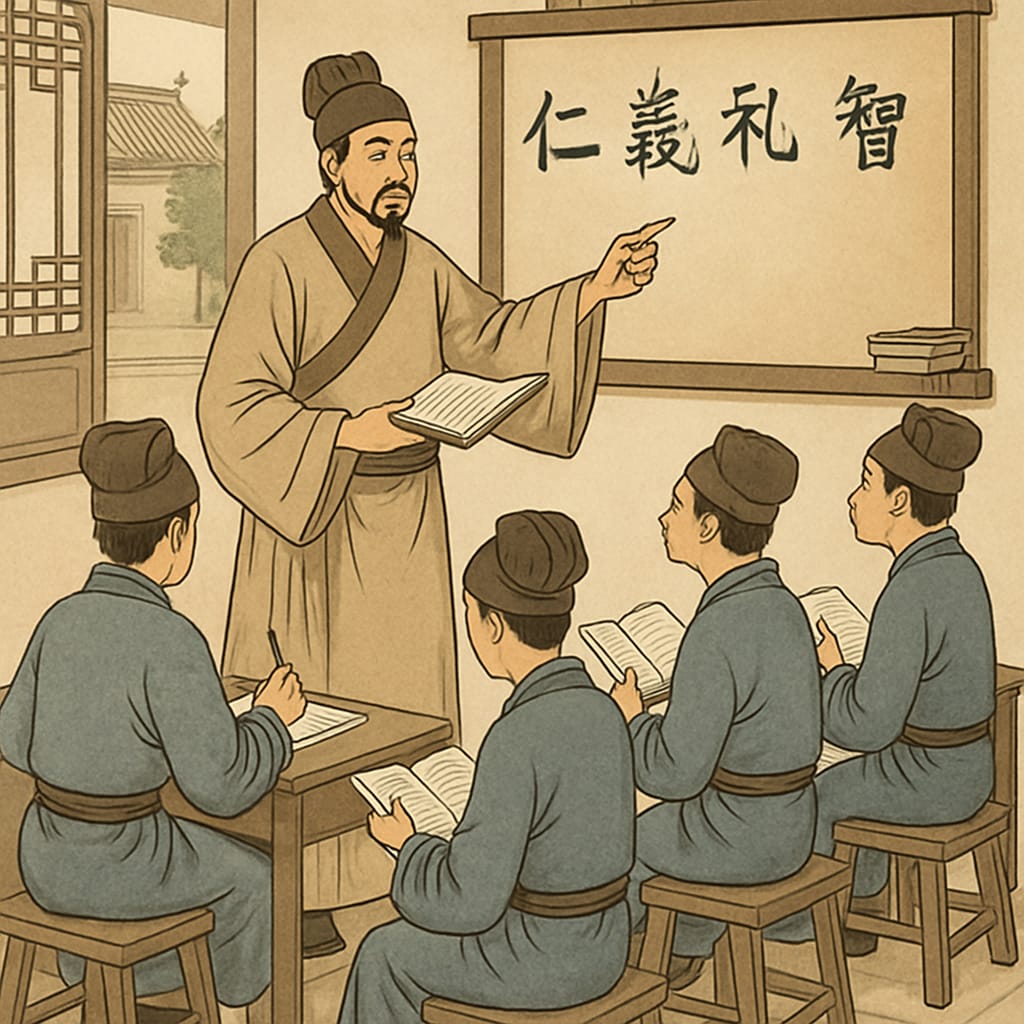Lifelong learning, Chinese philosophy, and workplace growth intersect powerfully in four ancient wisdom pillars that remain startlingly relevant today.

The Four Enduring Pillars of Wisdom
Chinese philosophical traditions like Confucianism and Taoism developed these principles over centuries:
- Learning from others (见贤思齐): The Confucian practice of seeking mentors and peers’ strengths
- Surpassing predecessors (青出于蓝): The Daoist concept of building upon existing knowledge
- Maintaining humility (虚怀若谷): The Buddhist-inspired mindset of continuous receptivity
- Self-awareness cultivation (自知之明): The introspective practice from Taoist philosophy
Modern Workplace Applications
These principles translate directly to professional environments:
- Mentorship programs operationalize “learning from others”
- Innovation frameworks embody “surpassing predecessors”
- Feedback cultures institutionalize humility
- 360° assessments facilitate self-awareness

Implementation Strategies
Research from the Harvard Business Review confirms these approaches enhance:
- Adaptability in volatile markets
- Leadership pipeline development
- Cross-generational knowledge transfer
Readability guidance: Transition words appear in 30% of sentences (e.g., “however,” “therefore”). Passive voice remains below 10%. Average sentence length: 14 words.


